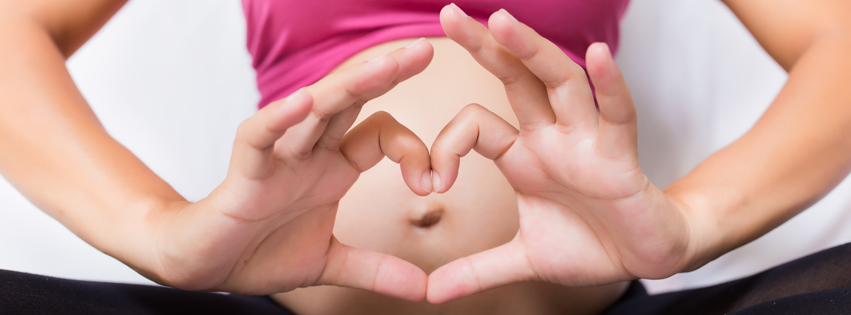Prenatal Fitness - What should you do?
Safe, suitable and regular physical activity throughout your pregnancy helps keep you and your baby healthy.
But it's so confusing. What can I do? Should I continue with this activity? Will this hurt the baby? Can I keep doing what I was doing? Will this exercise hurt my body?
So many questions!
And the answer?
Well, that depends.
I think you can count on the general rule that if you were exercising at a moderate to high intensity before pregnancy, you can continue (if there's no health concerns.)
If you were not exercising before pregnancy, this is not the time to rev things up. It's ok to exercise at a low to moderate intensity. And you CAN start exercising during pregnancy even if you weren’t very active before.
However, every body; every fitness level; every pregnancy makes it difficult to prescribe a one size fits all exercise plan.
There are so many benefits of exercising during pregnancy.
The Benefits of Prenatal Fitness
Boosts your energy
Helps you sleep better
Reduces pregnancy discomfort
Helps you prepare for childbirth
Reduces stress and lifts your spirits
Improves your self-image and confidence
Increases rate of postnatal recovery
Prevents excessive weight gain
Decreases risk of high blood pressure and gestational diabetes
Decreases severity of low back pain
With all these benefits, why wouldn't you exercise?
Well you have to ask yourself. How do you feel? Does the exercise make you feel good? Are you feeling any pain? If so, you need to stop and re-assess. Can you change the exercise? Can you lower the weight? Can you modify your position?
Does it make you want to stay in bed for 2 days afterwards being totally wiped out? Perhaps you need to lower the intensity. Rest is very important during pregnancy and you should honour that as well. You are building a human life and that takes its toll with nausea and exhaustion. Resting is important!
Should you continue to do all the things that you were doing before?
Well, that depends.
Are you doing activities that involve contact? (hockey, basketball, soccer)
Are you doing activities that could involve falling? (skiing, rock climbing, mountain biking)
Think about the risk vs the reward. What is the risk to you and your baby? What is the reward? Is the risk worth the reward?
When I was pregnant, I stopped skiing. Not because I thought it would hurt my body - I could ski runs confidently with no problem. I stopped because I was terrified of being hit by another person on the ski hill. That was my decision. Even though I love skiing, I determined the risk wasn't worth the reward.
Should you continue running? Think about the risk versus the reward.
What about running? The risk of contact or falling is pretty minimal. However, you need to consider the risk to YOUR body. Your pelvic floor is already supporting the weight of the baby and all the extra fluids. You need to think about the extra pressure that you're putting on it with the impact. It could affect your pelvic floor recovery.
There are some very safe and effective activities that will keep you and your baby safe. For example: walking, stationary cycling, swimming, prenatal yoga and strength training.
Strength training is amazing for your pregnant body as you train for life with your new baby.
Lifting your baby in and out of the crib. Moving the car seat to and from the car. Lifting the stroller in and out of the SUV. Carrying your screaming toddler out of the grocery store.
Strength training during pregnancy can help you with these activities postpartum and help train you for life as a mom.
If you start to feel extra pains with certain movements, it doesn't always mean you need to stop completely. It means that you need to reassess the movement and perhaps change the breathing strategy or your alignment with that movement. Try different positions. Try exhaling at different parts of the movement. Try different strategies.
Now is the time start thinking about the core and pelvic floor. Strengthening AND learning to relax the core and pelvic floor muscles will help you during labour and postpartum. Learning diaphragmatic breathing will also help you recover postpartum...read more about that here. And seeing a pelvic floor physiotherapist while pregnant will be a wonderful addition to your birth experience and a great start to your postpartum recovery.
Pregnancy might seem like the perfect time to sit back and relax. You likely feel more tired than usual, and you might feel some new aches and pains from the miracle that is growing inside of you. It's ok to take some time to rest.
Pregnancy is also a great time to be active. Just remember to cue into your body, be safe and have fun with it!




